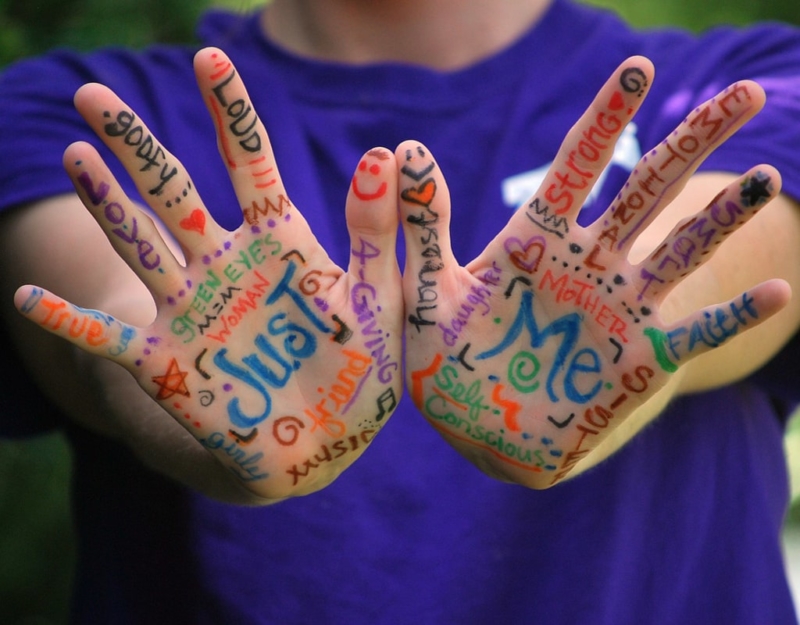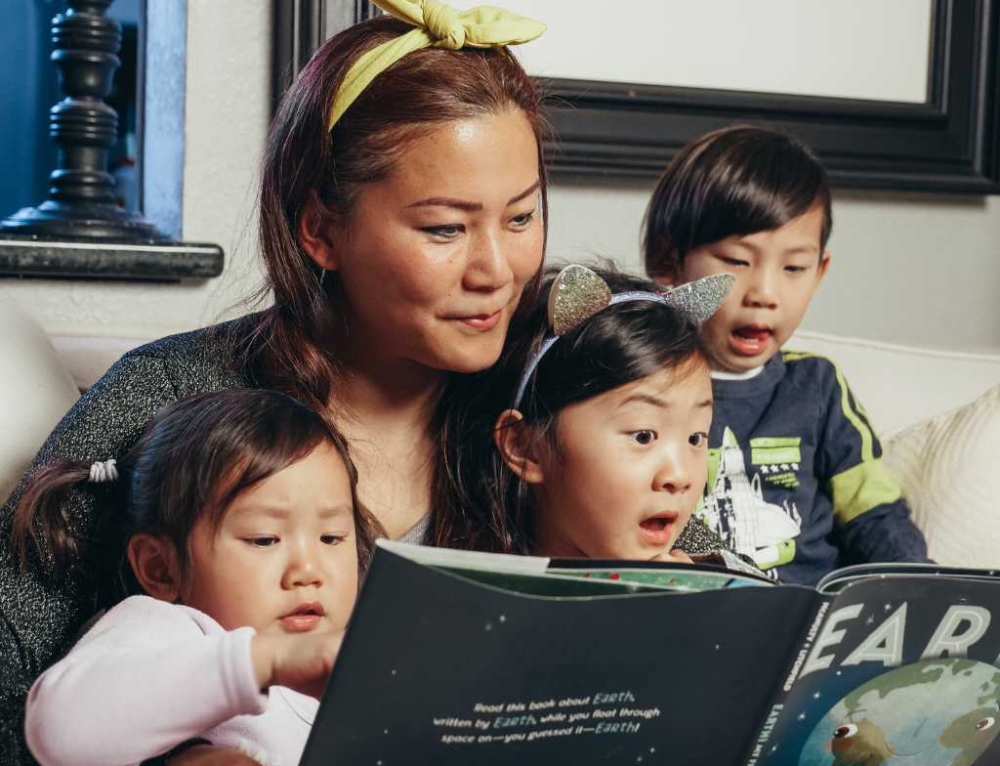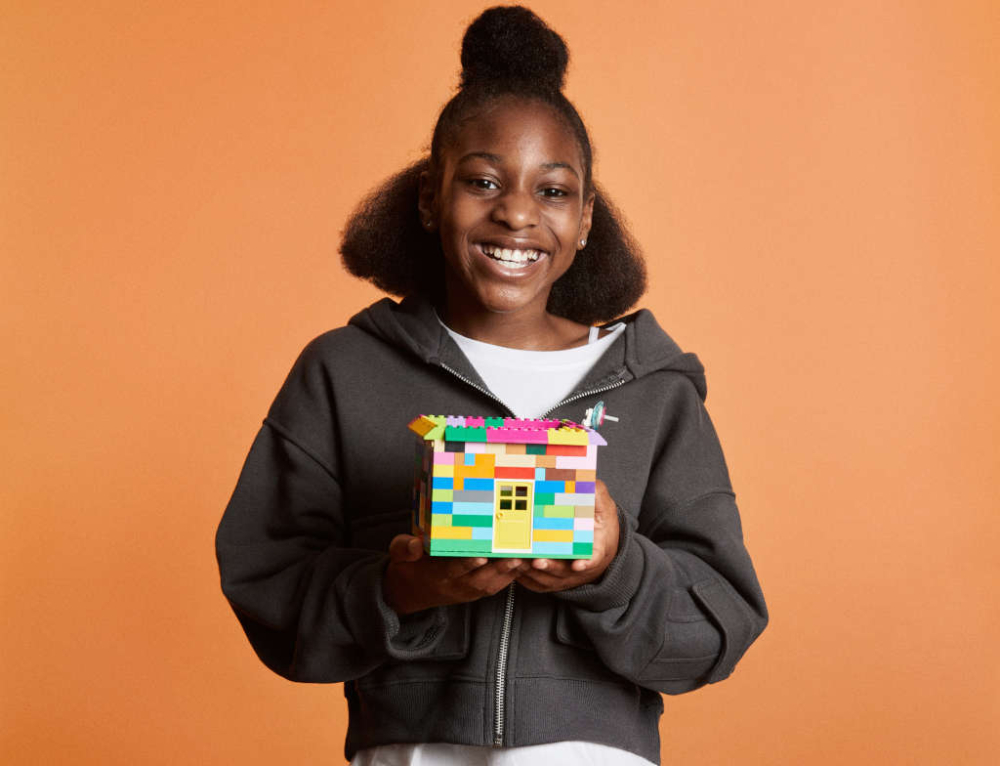‘Don’t be so sensitive’ may be the worst thing you can say to a sensitive child, says parenting expert, Dr Justin Coulson.
If you have been a parent for more than a few minutes, you might have noticed something about children and sensitivity – most children are inherently sensitive. They feel secure when they receive our warmth and compassion. But their sensitivities are heightened when our responses are sharp, cold or harsh. Some people argue that we need to toughen our children up so they can survive in a dog-eat-dog world.
I disagree. I want my children to be sensitive. I want them to be able to identify their feelings, to know what they are and why they are having them. I want them to trust their feelings. They need to be sensitive in order to do these things. Those feelings let them know what’s OK and what’s not. In addition, I want them to be sensitive to others. I want them to be empathic, and to know how to respond to other people’s emotions. I want their sensitivity to be a blessing, rather than a burden.
The best way I can help my children to be sensitive is to honour their feelings, and turn towards them with empathy and kindness. When I do this, I believe I fulfil what L. R. Knost, author of Two Thousand Kisses a Day, hoped for when she said: “It’s not our job to toughen our children up to face a cruel and heartless world. It’s our job to raise children who will make the world a little less cruel and heartless.”
Why are kids so sensitive?
Emotional development
Part of our children’s sensitivity is a response to their development. That is – it’s biological. Researchers point out that emotional regulation is a skill that we all struggle with, even as adults. But when our children are young, they find it particularly hard to not be sensitive. They feel something, it wells up inside them and they let it out. Emotions are big and hard to understand, let alone control.
Starting at age two, children are able to talk about their feelings and they begin to engage in strategies to control and regulate them. They start to use language to express feelings, but it is hard for them.
Usually around age seven or eight, children are beginning to effectively regulate their emotions. But it is not uncommon to see parents rousing on their kids for being so sensitive and emotional well before they are eight years old – particularly their sons.
Responding insensitively
In addition to biology, there is also an environmental influence to our children’s sensitivity. We have a habit of doing what Dr John Gottman describes as ‘turning away’, or ‘turning against’ our children.
In other words, we are insensitive!
When we respond with insensitivity to our children’s challenges, we show dismissal (you’ll get over it), or disapproval (you silly girl). Neither response is helpful but both are common. In fact, both responses make our children feel unworthy. They exacerbate our children’s sensitivity.
As our children get older and can regulate their emotions with some effectiveness, they may not respond to our statements with open sensitivity and tears. But this doesn’t mean they’re no longer sensitive. Instead, they hide it from us to avoid further recriminations, pushing it underground. But it will manifest in other ways in both the short term and long term. Relationships are ruptured and trust is eroded.
Responding with sensitivity
Instead of disapproving and dismissing our children’s sensitivities and turning against or away from them, Gottman recommends we turn towards our chlidren’s sensitivity. Accept it. When we have promoted the sensitivity by our own insensitivity, we should apologise for hurting our child’s feelings and promise to be more sensitive in the future. By showing empathy, we teach our children that they matter and that their feelings are a normal part of being human. We show that we care.
Our children’s sensitivity can feel like a rod for our backs. But when we tell them to stop being so sensitive, we diminish them and our relationship with them. When we show love, empathy and kindness, we raise children who know they matter and who can be a blessing to others.
This article was written for Kidspot by Justin Coulson, Ph. D. Justin is a relationships and parenting expert, author and father of five children. Find him on Facebook, Twitter, and at happyfamilies.com.au.
Do you have a ‘sensitive soul’ at your place?
See more:







My youngest daughter is a very sensitive soul. It’s hard because she cries so readily it can make school days difficult. We don’t want to discourage or be negative about the crying. Everyone needs to cry sometimes, but at the same time everything is sooo hard. She feels things so deeply, it can be tough to navigate. I often wonder if I’m saying the right things. I’m sure I have said the wrong things many many times when the patience has worn thin! I have to try to keep being mindful about it.
I think it is better to teach these lessons when younger also so that a child feels that they can speak to their parents and not be judged or their feelings dismissed which should hopefully help when they are teenagers too. It can be hard if you have a different personality to your child but their feeling still need to be acknowledged.
I like how the phrase of this article states that we want sensitivity to be a blessing rather than a burden. This is a better way of understanding a sensitive child. We live in a patriarchal society where men or boys are supposed to toughen up, and we need to break this mold. I’ve met a young 3 year old boy who couldn’t distinguish what he was feeling – sad, happy, angry etc. — the empathy wasn’t there so it’s good to teach our young kids as early as possible on how to express what they are feeling, and acknowledge these feelings and it doesn’t always have to be just always happy or sad.
This was a really good article and so relevant for so many children, and adults. Our 9 year old son is very sensitive. Unfortunately his mother doesn’t get it and is extremely harsh and hard on him which is really sad as it’s hard trying to unravel the damage that is done through her words or inactions in the time we have with him 🙁
I remember being at a soccer tournament with my son when a little boy in his team was tripped and fell over very hard, he left the field in tears as he was very hurt, his mother stood over him while he sat on the ground yelling at him to ‘Harden up’ and ‘stop being a baby’. I couldnt believe that someone could be so harsh to their own child and swore that I would never speak to my children like that! My kids are rather sensitive and really react to the words that are said to them, positive and negative, I have found to get them to behave in a way that I would prefer, I need to choose gentle words and try to empathise with them, rather than berate them as they will play up more if they are made to feel bad.
I saw the boy from the soccer game a few days later with a cast on his arm that was broken when he fell.
2 of 3 boys are sensitive souls and I naturally gravitate towards that and it suits my parenting style quite abit.. Dad on the other hand has had to learn that being a sensitive soul doesn’t make you a “pussy” as he saw it but rather in tune with your feelings and just abit more gentle than maybe some others.
My eldest at the moment seems to be that much more sensitive as he hits puberty too so it’s almost like a double dose happening which sometimes can be abit of a challenge trying to figure out if it’s the hormones or just his sweet sensitive self… Being boys too I’ve had to have a few chats to them about it being OK and that not all men and boys are brut force rugby playing grunt grunt males and that’s OK.
Oh yes, my 6 year old daughter is hyper sensitive – she gets upset really easily and can cry over what some people think are small things, bless her. I am fairly sensitive I guess and I understand her, so it helps – but then it can pay to not be too overbearing and overcautious too as this can sometimes make things worse. We are currently trying to get her to “stand up for herself” a little more at school. She has a friend who is overbearing and wants to play with her (and only her) every day at school and she was getting a bit frustrated by this, but too sensitive to say anything as she didn’t want to hurt her friends feelings :). She has been really good though and we have coached her to say to her friend (in a very nice way of course) to say no if she doesn’t want to play with her and she has done really well, so really proud of her 🙂
My daughter is the sensitive one in our house it can be things at school or her brothers at home. Sometimes I feel like I can say nothing to her as she takes things the wrong way. She gets very emotional and I try to make things right or talk to her about why she is upset. Sometimes it makes her feel better by me giving her a hug as well.
This was a great read I really enjoyed the helpful tips. I have to sometimes sensitive souls. They are very much like me so if they are having a bad day or being picked on at school they become sensitive to anything said whether it be good or bad. They normally flip out and get very teary afterwards then I know something is wrong and has gone bad throughout the day. I deal with it with a hug and reassuring them and making sure the issue is sorted.
Yes we have a sensitive child… Our oldest (12yrs) is the sensitive one of our 3, he is quite shy and shows a lot of empathy towards others, he gets very emotional when his or other people’s feelings have been hurt and will always try his best to comfort them and make them feel better. Being empathetic to our children helps to create a safe place where they can express their feelings, while also teaching them respect and empathy for others. My son has just completed his speech about why life skills should be taught in all intermediate schools and teaching Empathy was one of those to be taught as some kids are not being shown this in their homes.
We love this article.
We do have two sensitive souls at our place and they both are so different personality wise, yet the sensitivity is there in each… my oldest is 6 and is the softer, gentler, quieter one who is openly sensitive regularly. She cries quicker and has her feelings hurt quicker. We initially felt out second one was just too tough and rough and was hardier…but it turns out, she is just as sensitive as her sister is but hers shows in a different way and her threshold is a bit higher before she caves. Either way, i agree that my being empathetic to them and their feelings we create a safe place for them to express their despair and we also nurture the respect and love they should give to others too… ive seen the difference firsthand with other kids my daughter hangs out with who have no feeling or thought for the next person cos they were brought up in a home being taught its a dog eat dog world…so they grab onto everything without compassion or empathy… great article